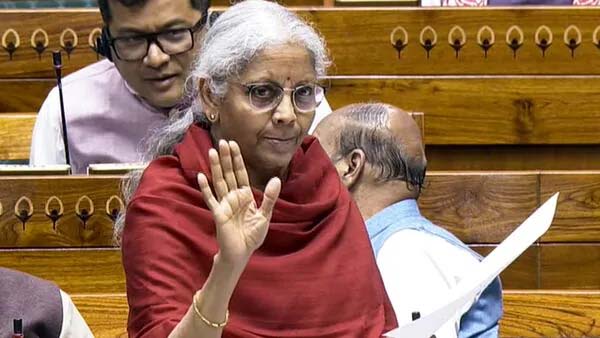NEW DELHI, Feb 12: A more streamlined and user-friendly Income Tax Bill 2025, comprising 536 sections and 23 chapters across 622 pages, is expected to be presented in the Lok Sabha on Thursday.
Once approved, this Bill will supplant the outdated Income Tax Act of 1961, which has become increasingly cumbersome and complicated due to numerous amendments over the years.
The proposed legislation changes the term ‘previous year’ from the Income Tax Act, 1961 to ‘tax year’, eliminating the concept of an assessment year.
Under the current system, tax is levied on income earned in the previous year (for instance, 2023-24) during the assessment year (such as 2024-25). The new proposal abolishes the previous and assessment year framework, substituting it with a single tax year term under the simplified legislation.
The Income Tax Bill of 2025 features 536 sections, which is an increase from the 298 sections present in the existing Income Tax Act, 1961. The number of schedules will rise from 14 to 16 in the new law.
Nevertheless, the number of chapters remains fixed at 23. The document’s length has been significantly reduced to 622 pages, nearly half of the current comprehensive Act that includes amendments enacted over the past sixty years.
Initially, in 1961, the Income Tax Act was presented in 880 pages.
“The increase in sections signifies a more organized approach to tax management, integrating modern compliance strategies, digital governance, and more streamlined provisions for both businesses and individuals. The new law will feature 16 schedules and 23 chapters,” stated Rajat Mohan, Senior Partner at AMRG & Associates.
The proposed law includes clearer tax regulations concerning stock options (ESOPs) to minimize tax disputes and integrates judicial rulings from the past sixty years for enhanced clarity.
“A significant change from the Income Tax Act of 1961 is that the Income Tax Department previously needed to seek Parliament’s approval for numerous procedural issues, tax schemes, and compliance frameworks. The new law empowers the CBDT to initiate such schemes independently, drastically cutting bureaucratic delays and enhancing the dynamism of tax governance,” he noted.
According to the new law, the CBDT is now authorized to establish tax administration rules, implement compliance initiatives, and enforce digital tax monitoring systems without necessitating frequent legislative updates as outlined in Clause 533.
After its introduction, the bill will likely be forwarded to a parliamentary standing committee for evaluation.
Finance Minister Nirmala Sitharaman announced during the Budget 2025-26 that the new tax bill would be introduced in the current session of Parliament.
Sitharaman initially proposed a thorough review of the Income Tax Act, 1961, in the July 2024 Budget.
The CBDT created an internal committee to manage the review, aiming to make the Act concise, clear, and user-friendly, thereby reducing disputes and litigation and enhancing tax certainty for taxpayers. Additionally, 22 specialized sub-committees have been formed to evaluate various components of the Income Tax Act.
The public was invited to provide feedback and suggestions across four categories: simplifying the language, minimizing litigation, reducing compliance burdens, and eliminating redundant or outdated provisions.
The income tax department has collected 6,500 recommendations from stakeholders regarding the review of the Income Tax Act. (PTI)


Leave a Reply